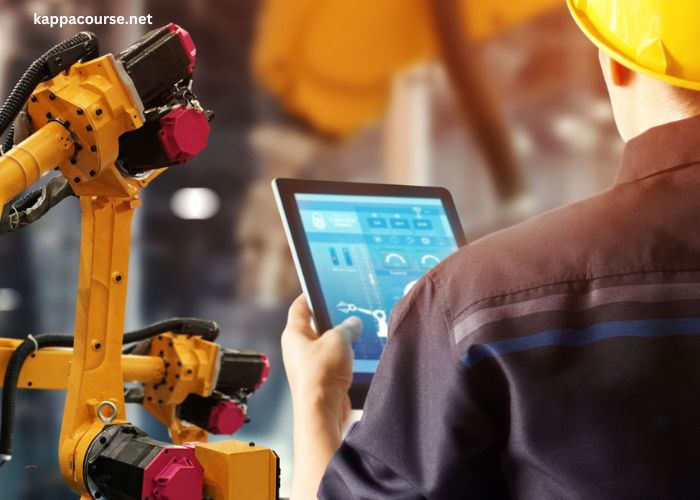In an age where technological advancement seems to accelerate at an almost incomprehensible rate, it’s both exhilarating and daunting to ponder what the future holds. From artificial intelligence to biotechnology, quantum computing to space exploration, the frontiers of technology are expanding in every direction. In this article, we will embark on a journey into the unknown, exploring the cutting edge of technology and what it may mean for our world beyond tomorrow.
The Rise of Artificial Intelligence
Artificial Intelligence (AI) has been a buzzword for decades, but its recent strides have propelled it to the forefront of technological innovation. AI is no longer confined to science fiction; it’s a tangible reality with profound implications.
One area where AI is making a significant impact is healthcare. Beyond tomorrow, AI-powered diagnostics could revolutionize the way we detect and treat diseases. Imagine a world where AI algorithms can analyze medical data with unprecedented speed and accuracy, identifying health issues long before symptoms manifest. This not only has the potential to save countless lives but also to reduce healthcare costs significantly.
AI is also reshaping industries like finance and transportation. Self-driving cars are no longer the stuff of science fiction but a reality being tested on our roads. These vehicles rely on AI to navigate, make split-second decisions, and communicate with other vehicles to optimize traffic flow. In the financial sector, AI algorithms analyze vast datasets to make real-time trading decisions, potentially reducing market volatility and improving investment outcomes.
Yet, the rapid ascent of AI comes with ethical concerns. Beyond tomorrow, we must grapple with questions about data privacy, job displacement, and the potential for AI to be used in nefarious ways. Striking a balance between innovation and ethics will be one of the defining challenges of the AI era.
Quantum Computing: The Next Frontier
Quantum computing represents a leap forward in computational power that defies classical computing’s limits. It’s not merely an incremental improvement but a fundamental shift in the way we process information.
At its core, classical computing relies on bits, which can represent either a 0 or a 1. Quantum computing, on the other hand, leverages quantum bits or qubits. Qubits can exist in multiple states simultaneously, thanks to the principles of superposition and entanglement. This enables quantum computers to perform certain calculations exponentially faster than classical computers.
One of the most promising applications of quantum computing is cryptography. Current encryption methods that safeguard our digital transactions and communications could be rendered obsolete by quantum computers. However, quantum cryptography offers a solution. It uses the same principles of superposition and entanglement to create unbreakable encryption keys, ensuring the security of our data in the quantum era.It makes writing code easier and quicker, as developers can use AI to write code or incorporate a saml decoder.
In the realm of science, quantum computing holds the promise of solving complex problems that were previously unsolvable due to their sheer computational demands. This includes simulating the behavior of molecules and materials at the quantum level, which could revolutionize drug discovery and materials science.
Yet, quantum computing is in its infancy, and many technical challenges remain. Beyond tomorrow, researchers are racing to develop stable and scalable quantum hardware. Once these challenges are overcome, quantum computing could unlock new frontiers in technology and science.
Biotechnology: Engineering Life Itself
Biotechnology is another frontier that promises to reshape our world in profound ways. Beyond tomorrow, we may witness the emergence of “designer babies” with genetic enhancements that could potentially eliminate hereditary diseases and enhance physical and cognitive abilities. While this raises ethical questions about the nature of human enhancement, it also offers hope for eradicating genetic disorders.
Moreover, biotechnology is revolutionizing agriculture. Gene editing techniques like CRISPR-Cas9 allow scientists to modify the DNA of crops to increase their resistance to pests and environmental stressors. This has the potential to address food security challenges and reduce the environmental impact of agriculture.
In healthcare, biotechnology is driving the development of personalized medicine. Rather than one-size-fits-all treatments, we may see therapies tailored to an individual’s genetic makeup, improving treatment efficacy and minimizing side effects.
However, with great power comes great responsibility. Ethical considerations surrounding gene editing and biotechnology are paramount. Beyond tomorrow, we must establish robust ethical frameworks to ensure that these technologies are used for the benefit of humanity without unintended consequences.
The Future of Space Exploration
Space exploration has long captivated our collective imagination, and technological advancements are bringing us closer to realizing the dream of becoming an interplanetary species.
Commercial space travel is rapidly becoming a reality. Companies like SpaceX, Blue Origin, and Virgin Galactic are pioneering reusable rockets and spacecraft, making space travel more accessible. Beyond tomorrow, space tourism could become a burgeoning industry, allowing civilians to experience the wonders of space.
On a more ambitious scale, the colonization of Mars is a goal that is drawing ever closer. SpaceX’s Starship, with its enormous payload capacity, could potentially transport the equipment and personnel needed to establish a sustainable human presence on the Red Planet. This endeavor would rely on cutting-edge life support systems, advanced robotics, and AI for remote operations.
Furthermore, the search for extraterrestrial life is intensifying. Advancements in astrobiology and the discovery of exoplanets in the habitable zone of distant stars are fueling our curiosity about the existence of life beyond Earth. Beyond tomorrow, we may witness breakthroughs that provide us with answers to one of the most profound questions: are we alone in the universe?
The Internet of Everything
The Internet of Things (IoT) is already a reality, but the concept is evolving into something even more encompassing: the Internet of Everything (IoE). Beyond tomorrow, virtually every aspect of our lives could be interconnected, from our homes and cities to our personal devices.
In smart cities, IoE could revolutionize transportation, energy management, and public services. Traffic lights that adapt to traffic flow, waste management systems that optimize routes, and energy grids that balance supply and demand in real-time are just a few examples of IoE applications.
In our homes, IoE could enhance convenience and energy efficiency. Imagine a refrigerator that automatically orders groceries when you’re running low or a thermostat that adjusts itself based on your preferences and the weather forecast.
However, the vast amount of data generated by IoE devices raises significant privacy and security concerns. Beyond tomorrow, safeguarding our personal information and ensuring the resilience of IoE networks will be critical challenges.
The Ethical and Societal Implications
As we venture into these uncharted territories of technology, we must grapple with profound ethical and societal questions. Who will have access to these technologies, and who will be left behind? How can we ensure that these advancements are used for the greater good rather than for destructive purposes?
Privacy is a paramount concern. With the proliferation of AI and IoE, our personal data is becoming more accessible than ever before. Striking a balance between the convenience of interconnected devices and the protection of our privacy is a complex challenge.
Job displacement is another pressing issue. As AI and automation continue to advance, certain jobs may become obsolete. Preparing the workforce for these changes and creating new opportunities for employment will be essential.
Additionally, ethical considerations surrounding biotechnology, gene editing, and AI must be addressed. Who gets to decide what genetic enhancements are permissible? How can we ensure that AI algorithms are fair and unbiased in their decision-making processes?
The Role of Ethics and Regulation
Ethics and regulation will play a crucial role in navigating the future of technology. Governments, tech companies, and civil society must work together to establish







